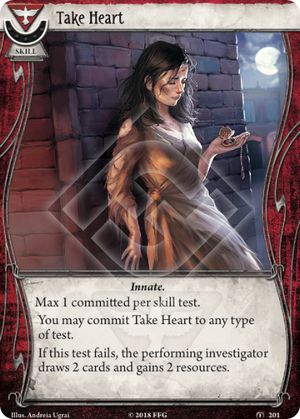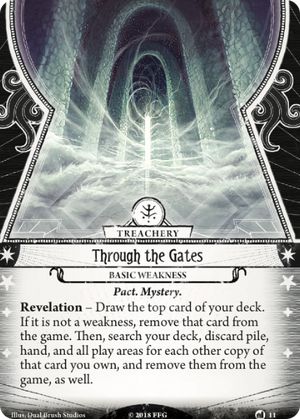
An incredible card when teamed up with my current investigator: "Ashcan" Pete. He often gets a free test he doesn't care about when Duke takes him off to go off investigating at other locations. (When he uses the Duke investigate action to move to another location and investigate, he is effectively using one action to "move", but if there are no clues there, he still investigates, and only minds failing if there is a nasty chaos token - he's just indulging his trusty dog, who's going off sniffing around the place.)
It is especially strong when teamed up with a few more survivor cards, such as one or two Drawing Thin, to "improve" the chances of failure, by making the test 2 or 4 steps more difficult of the test, and add further economy to a test that effectively didn't even cost an action. I love the way it turns the game on its head and you really don't want to draw an elder sign, in case you waste your card.
On top of that, that you can use it with the upgraded Grisly Totem to return Take Heart to your hand afterwards, and do the same thing again next round!!
I'm currently playing my (non-taboo) "Ashcan" Pete deck and have just upgraded my Grisly Totem. Together with Rabbit's Foot; Relic Hunter, and two Drawing Thin. I'm looking forward to getting them all out, using a "free" action to investigate and deliberately fail. If i get it right, for the cost of exhausting a few assets and moving, I'd get 6 resources(2 from each Drawing Thin, 2 from Take Heart, draw 3 cards and get Take Heart back into my hand. (or using the other choice for Drawing Thin, gain 2 resources, draw 5 cards and get Take Heart back).
Do that combo for a couple of turns in a row and your hand is full of cards, with resources worthy of a rogue, ready to boost the skill checks you want to succeed with Scrapper; Fire Axe; Plucky or Dig Deep; and all those lovely skill cards you just drew.




